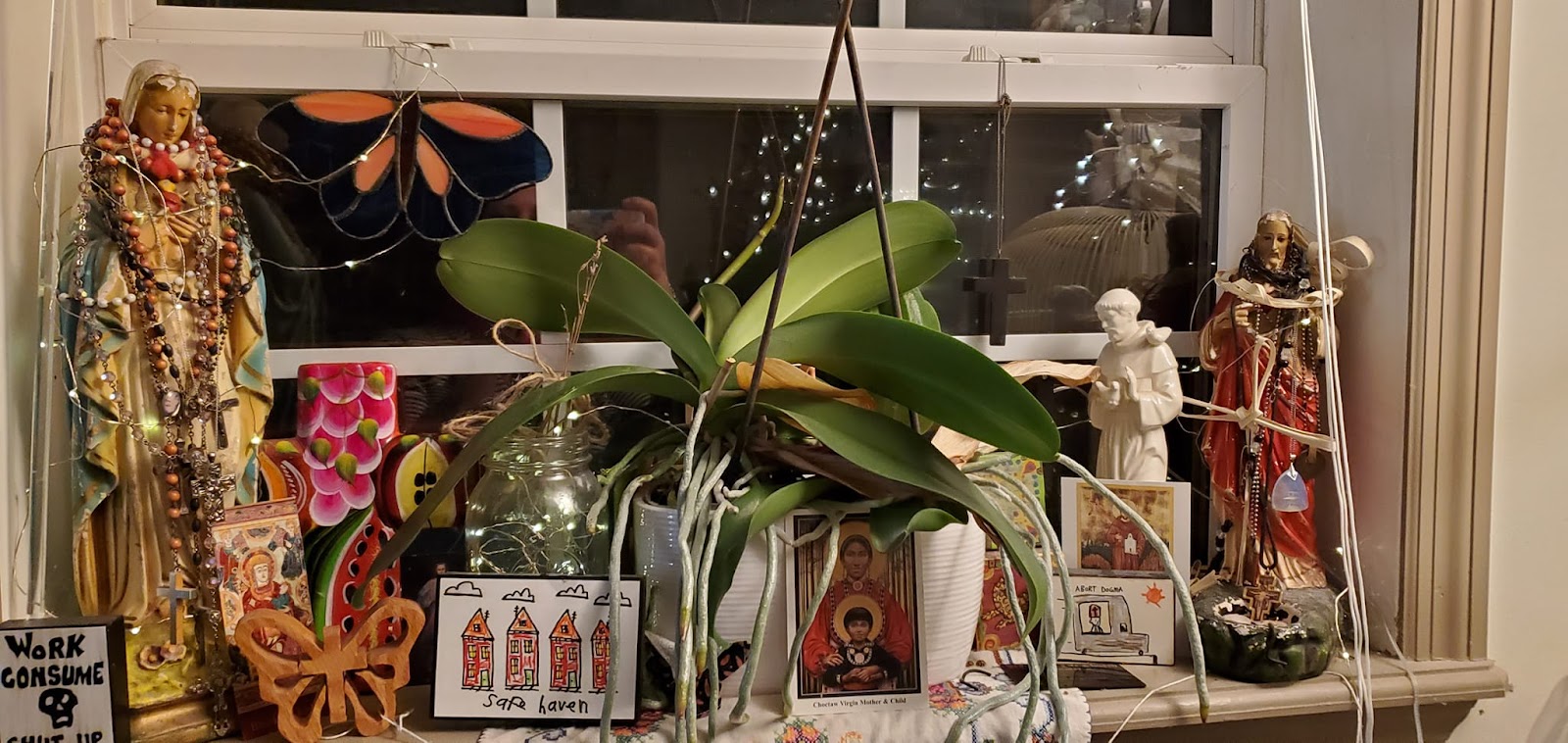Short Reflection Essay - Black Panther Movie - Yoruba Spirituality Intercession 2023
First I would like to state that these reflections that I am making are coming from my own personal standpoint - as a white cisgender, disabled woman - and so my observations will certainly be influenced by this. Specific things I thought about while I was watching this film relate to the story, but also to the cast and production, and the messaging that this film telegraphs to the viewer.
Originally, the story and names came from the mind of Stan Lee - who was ostensibly an old (now dead) white guy. However, he was also Jewish, and while this does not necessarily mean that people will get a “pass” on anti-black racism, or sexism, the story and resultant comics were very much in line with the civil rights movement of the time. By most measures, Black Panther was a revolutionary kind of comic book hero, and this has carried over into major film productions. Another interesting thing to note about Marvel heroes in general, is that they were created to be more human and less messianic, and so they had obvious flaws that were important to their character development. In particular, the comic was quite subversive for the time, especially in comparison to other media - making him a king, his kingdom very technologically advanced and peaceful, and also making his enemy a colonizer - this was considered incredibly subversive for the time period - and it was also in contrast to a lot of the other black comic and film heroes of the day. Black Panther has also had to deal with issues that other media created about and primarily for a black audience always must contend with - that it also needs to be made palatable to white audiences for financial reasons. This is especially true of film productions which have a much higher production cost than TV, or comic books.
Another thing that struck me about this film - is the breathtakingly beautiful imagery of the African continent, and African peoples. This is much in contrast to the images that most Americans are exposed to of the land and peoples from the various countries in Africa. Most days on the news we hear or see little to nothing of news from the continent, and when we do (much like most of the news) it is almost always negative. I am glad that I at least was a fan of nature documentaries when I was a kid so that I knew that the continent had a lot of natural beauty and diversity…and I also knew that it was a continent and not a country!
Now - to the more “meaty” observations and reflections regarding this film… It was more than just a superhero movie - it touched on topics of pan Africanism, black colonial trauma, intergenerational trauma, and internal black class struggles quite artfully, and with characters that were very relatable to the audience. I would suspect that many viewers of this film could resonate with the stories of at least one or more of the characters, their social position/roles and the responsibilities that they entailed.
I think that Killmonger was presented as a metaphor for very real black pain, which transcends class boundaries, and therefore he was a very relatable anti-hero. He struggled with the difficulty and burden of this pain and mostly was unable to see beyond the trauma of his past, and this was at the root of his violence. During his time in the ancestral pain, we see him flashing back and forth between his child self and his adult self and see him reject the wisdom offered by the ancestors because of his burden of childhood trauma. This is very much in contrast to the visions from T’Challa when he goes to the ancestral plane.
There are some people who see Killmonger as the real hero of this film, however…seeing him as a hero rather than villain is somewhat problematic. In this film, Killmonger represents a particular type of liberation language that is appealing on multiple levels. However, he is a person that is not suited to leadership because of his inability to let go of past pain - the blending of liberationist politics and fascism is not unknown in the real world. He exhibits a lot of unsavory character traits that would make him an undesirable leader, overt misogyny being just one. Charismatic, forceful leadership often gains traction, however, they rarely have a good outcome when in positions of power (Gadafi, etc).
This is also problematic because positing the “revolution” side with the violent and unstable Killmonger and the “monarchy” side as a stagnant status quo doesn’t necessarily help us imagine ways to produce a change in society that doesn’t involve violence.
The last thing I would like to reflect on is the way that this film handles disability. In essence, disability is abolished in Wakanda - the agent who is shot through his spine is miraculously cured and doesn’t have to suffer the indignity of being disabled. The only real disabled person in the film is Klaue, and his hand is not viewed in a positive way - it's a weapon, a sign of greed and avarice, and also without his prosthesis he is basically weak and ineffectual, and easily defeated. I find that this is just more status quo when it comes to portrayals of disability by mainstream media.
I think that there is plenty of material in this film to use as a story or foundation for preaching regarding social justice issues though, and in general I really loved this film - for its lovely imagery. I think that it posed serious issues about black lives in a way that white audiences could learn from and that black audiences could feel empowered by.

Comments
Post a Comment